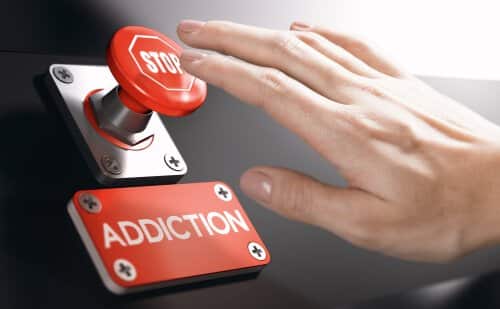Methadone Withdrawal Symptoms
WHAT IS METHADONE?
Methadone is a pain-relieving drug that is used to alleviate acute bone and muscle pain. It is also very effective in mitigating opiate withdrawal symptoms in individuals recovering from abuse of heroin, opioid pain pills, morphine, or fentanyl. It is administered orally or as an injection. Methadone treatment in New Jersey is not hard to find and they are located in almost every part of the state: Middlesex county, Essex county, Bergen county, Monmouth county, Somerset county, Ocean county, Hunterdon county, Union county, Hudson county, Mercer county, Passaic county, Morris county, Sussex county, Warren county, etc.
Methadone is a synthetic opioid agonist that effectively mitigates withdrawal symptoms and relieves drug cravings by acting on opioid receptors in the brain, in a similar fashion as that other opioids such as heroin, morphine, and opioid pain medications. However, it does so more slowly than the above-mentioned opioids. Consequently, an individual addicted to opioids, methadone treatment doses not produce euphoria. It has been used successfully for nearly six decades to treat opioid use disorder. It is available through specialized opioid treatment programs.
While methadone maintenance treatment should continue for at least 12 months, people on Methadone maintenance should be aware of the longer-term consequences of staying on methadone and explore pathways to come off of the medication when they feel that their recovery has been firmly established. The primary risk with prolonged use of methadone is becoming dependent on the medication and being unable to quit taking it, or increasing use as tolerance builds.
Long-Term Methadone Use May Result In:
- Trouble concentrating
- Negative impact on the liver, nerves and brain
- Cardiovascular problems
- Sexual/Menstrual dysfunction
Methadone is a full opioid agonist and it metabolized slowly. Methadone poses a greater risk of overdose than buprenorphine. Methadone is abused by consuming or injecting higher than prescribed quantities, snorting it or smoking it. In 2010, abuse of methadone caused 65,945 Emergency Room visits. However, due to established controls, the methadone dispensed for substance use disorders was not the source of this diversion. It came from methadone that was dispensed for use as a pain reliever.

Physical Symptoms of Methadone Abuse
- Poor reflexes
- Unusual sluggishness
- Weakness
- Trouble concentrating
- Vision problems
- Clammy skin
- Dry mouth
- Sweating
- Depressed breathing.
- Constipation
- Sexual dysfunction or irregular menstruation
- Increasing tolerance for the drug
- Withdrawal symptoms
- Difficulty falling asleep or staying asleep during the night
Behavioral Symptoms of Methadone Abuse
- Stockpiling of methadone
- Aggressive behavior when confronted about abuse
- Frequent doctor visits to get increased supply
- Lying about or hiding methadone use
- Avoiding attending self-help or support groups
Overuse or Abuse of Methadone
Like other opiates, methadone is a central nervous system (CNS) depressant. Overuse or unprescribed use of methadone hydrochloride tablets (the form most preferred for pain control) can lead to life-threatening respiratory depression, especially when co-abused with other opiates such as heroin or opiate pain pills, benzos or alcohol. Misuse of methadone could lead to severe addiction, overdose, and even death. Methadone should never be combined with other medications that could lead to slowed breathing.
This medicine should also not be taken while pregnant or breastfeeding. New-born who are under the effect of this medication may need medical treatment for several weeks after birth. This medicine transferred from a mother to the baby through breastmilk can cause drowsiness, breathing problems, or death.
Methadone Withdrawal Symptoms

Methadone withdrawal symptoms can be excruciatingly painful. Methadone withdrawal can set is anywhere between 24 and 48 hours after last use depending on the quantity ingested. Withdrawal symptoms include: flu-like symptoms, diarrhea, vomiting, agitation, anxiety, insomnia, sensitivity to sound and light, shivering, chills, and goose bumps. It is advisable not to try to quit methadone use cold turkey without medical supervision. It should always be undertaken at a licensed detox facility under medical supervision, because some of the withdrawal symptoms can be effectively addressed through medication at a detox facility. The danger with trying to come off of methadone at home is the risk of relapse on opiates when the withdrawal becomes unbearable. Not only would it be a psychological setback, it is also dangerous as the risk of overdose increases when an individual relapses on the his/her substance of choice after a break.
Help for Methadone Withdrawal
There is no dearth of methadone clinics in New Jersey. However, these clinics usually are not equipped to detox a person off of methadone, although they can help by tapering methadone doses to lower levels in consultation with the patient. Licensed methadone detox facilities like the Center for Network Therapy are fully equipped for methadone detox. They have the requisite detox- related medications, including buprenorphine, suboxone or Subutex, on hand to alleviate methadone withdrawal symptoms and ensure that the individual seeking to quit methadone is successful in doing so by decreasing discomfort during the detox process.
Drug Treatment for Methadone Withdrawal
Buprenorphine, naloxone, and clonidine are drugs that can be used to mitigate the withdrawal process and relieve some of the medical issues and methadone withdrawal symptoms.
Therapy to Address Psychological Methadone Withdrawal Symptoms
The importance of receiving therapy, group and individual, during the methadone detox process cannot be overestimated. Anxiety is a major issue
when methadone use is stopped and so is depression. While medication to address these issues can be prescribed, therapy plays an important role in
building longer-term coping skills to deal with these issues.
Emotional Support During Methadone Detox
Methadone treatment in New Jersey is a rarer find. Methadone Detox is now available on an outpatient basis at facilities that are licensed by the State of New Jersey, but not all of them detox individuals off of methadone. CNT provides Ambulatory, or Outpatient Methadone Detox is safe and more effective than inpatient treatment. The beauty of outpatient methadone detox is that the therapy received at the facility can tested in the home environment every day and adjustments made while in treatment. No matter which CNT facility you go to – West Orange, Freehold or Middlesex – you will find high-quality care that makes coming off of methadone a less inhibiting process.
Consequently, clients at CNT’s New Jersey facilities find that Outpatient Methadone Detox delivers better outcomes than inpatient treatment.
Fortunately for New Jersey residents methadone withdrawal management is available in several locations in New Jersey: Far Hills, Warren, Marlboro, West Orange, Short Hills, Freehold, Manalapan, Union, Middlesex, Scotch Plains, Westfield, Livingston, Chatham, Madison, Hackensack, Bedminster, Jersey City, Bridgewater, Toms River, Morristown, Newton, Pine Brook, Montville, Nutley, Ridgewood, Montclair, Lakewood, Cherry Hill, Newark, Trenton, East Orange, Mendham, Chester, Fords, Metuchen, Edison, New Brunswick, Matawan, East Brunswick, Paramus, Upper Saddle River, HoHoKus, etc.
Related Articles


